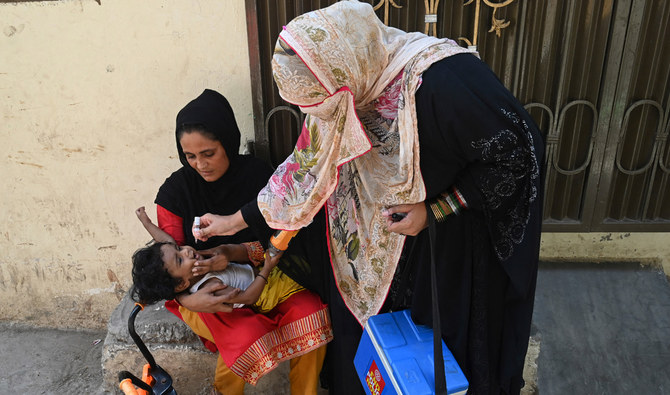ISLAMABAD: Prime Minister Shehbaz Sharif on Thursday met American business tycoon and philanthropist Bill Gates in New York to discuss emerging challenges to the anti-polio campaign in Pakistan in the wake of the recent floods which have claimed nearly 1,600 lives and displaced more than 33 million people.
The American entrepreneur and founder of Microsoft also co-chairs the Bill & Melinda Gates Foundation which has been helping Pakistan eradicate the crippling disease that affects brain and spinal cord while causing irreversible paralysis among young children.
Pakistan has already reported more than 10 polio cases in the country’s northwestern tribal districts since the beginning of the year.
The recent floods are also likely to impede the vaccination drive to immunize children against the wild poliovirus since they have displaced a chunk of Pakistan’s population and put its health care system under tremendous strain.
“The Prime Minister and Mr. Gates discussed that [polio] eradication efforts were facing a challenging situation because of the floods, especially after a recent rise in the number of wild polio cases,” said a statement issued by the PM Office after the meeting. “The Prime Minister reaffirmed the government’s resolve to pursue the campaign relentlessly.”
Gates agreed to continue his organization’s collaboration with the government to “prevent the disease from re-establishing itself in Pakistan’s major cities.”
The prime minister told the American entrepreneur how his administration used the “robust infrastructure” of the polio program to implement its flood response by deploying the surveillance system to monitor malaria, dengue and other water-borne diseases and providing life-saving vaccines to children.
Gates affirmed his organization would continue its current support including the disaster relief efforts in flood-affected areas of Balochistan and Sindh provinces.
The prime minister pointed out the need to prioritize maternal and newborn care in flood-hit regions while thanking Gates and his foundation for supporting Pakistan’s relief efforts.
















